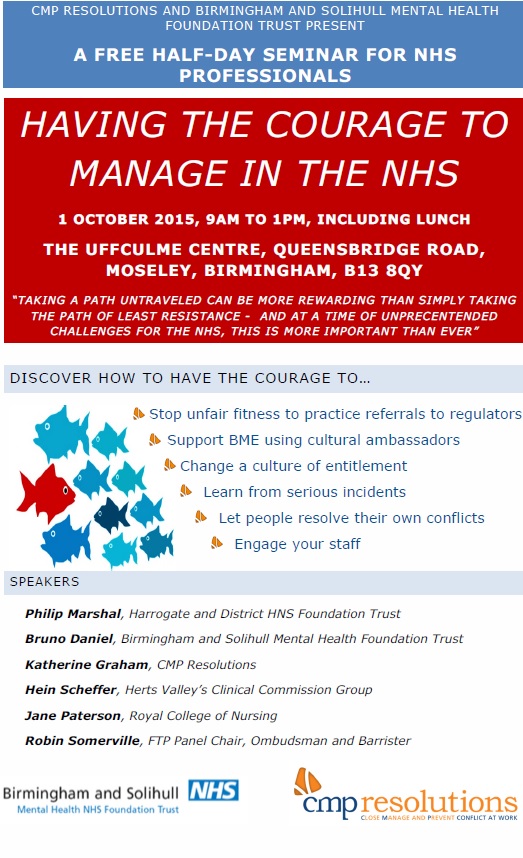Fitness to Practise: All in the Balance
A guest blog by Oliver Mundy, Managing Director at FTP Support Ltd and also a CMP Associate.
Investigation 28th August 2015
Why is there so much talk of fitness to practise within the healthcare sector? The vast majority of healthcare professionals are fit to practise; they do not pose any risk to patient safety.
So what’s the big deal?
The public expects patients to be safe and for standards within the healthcare sector to be upheld. And so they should. All the while there are risks to patient safety and public confidence in the profession, there is work to be done, and a lot of it. The question therefore becomes: how do you regulate the sector and manage the risks without stifling it? And therein lies the challenge, one that will never go away.
How does a regulator be proactive without being overbearing? How does it be a light touch without being reactive?
All healthcare regulatory bodies in the UK employ a system of Standards to which its registrants must adhere. If they fall short of these Standards, the regulators will act to ensure that patients remain safe and that there remains public confidence in the profession. Many would argue that, in essence, this system works very well. And yet it was with these Standards in place that the events investigated by Robert Francis QC as part of the Mid Staffordshire NHS Foundation Trust Public Inquiry took place.
Mr Francis found that there had been “an appalling lack of care” at Mid Staffordshire Hospital and that the NHS had failed “at every level“. Some might argue the findings of the Inquiry have provoked something of a knee-jerk reaction from healthcare regulatory bodies. Was there something wrong with the Standards in place at the time, or was it just a case of regulators failing to ensure these Standards were met?
A culture of “secrecy and defensiveness” within the NHS
In his 2013 report, Mr Francis concluded that the problems came from a culture of “secrecy and defensiveness” within the NHS. He called for a statutory “duty of candour”; an environment where individuals are able to be open and transparent in relation to failings.
In response to Mr Francis’s report, the Royal College of Nurses stated, “We believe that large parts of the NHS need to fundamentally change the way in which patient feedback and complaints are viewed and used … Instead of complaints being seen as interruptions in the delivery of care, or worse being treated as a possible legal problem, the NHS must be positive about getting and using patient feedback.”
Although patients must be the primary concern, it is also important to spare a thought for the many caring and competent healthcare professionals that the NHS relies upon. What are required are effective complaint procedures that encourage feedback from patients and others using the NHS, while ensuring professionals are not driven away from the industry by disproportionate scrutiny and intrusive investigations into their fitness to practise. Healthcare regulators must not forget that complaints may be unfounded or vexatious.
And this is why fitness to practise remains a topic of national debate. It is something of a balancing act, and a very delicate one at that.
Providing healthcare will always be fraught with risks, but these risks should be identified and managed, ensuring healthcare professionals are fit to practise without unduly affecting their ability to do their jobs. It is all in the balance.
